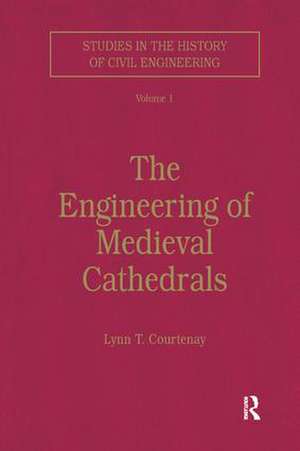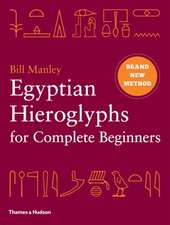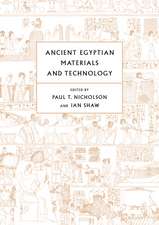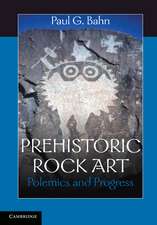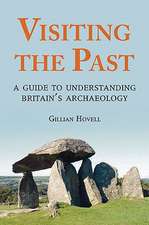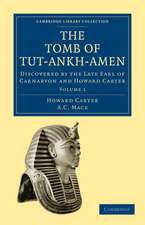The Engineering of Medieval Cathedrals: Studies in the History of Civil Engineering
Autor Lynn Courtenayen Limba Engleză Paperback – 11 noi 2016
| Toate formatele și edițiile | Preț | Express |
|---|---|---|
| Paperback (1) | 344.33 lei 6-8 săpt. | |
| Taylor & Francis – 11 noi 2016 | 344.33 lei 6-8 săpt. | |
| Hardback (1) | 1042.56 lei 6-8 săpt. | |
| Taylor & Francis – 11 dec 1997 | 1042.56 lei 6-8 săpt. |
Preț: 344.33 lei
Preț vechi: 404.93 lei
-15% Nou
Puncte Express: 516
Preț estimativ în valută:
65.89€ • 68.98$ • 54.52£
65.89€ • 68.98$ • 54.52£
Carte tipărită la comandă
Livrare economică 05-19 aprilie
Preluare comenzi: 021 569.72.76
Specificații
ISBN-13: 9781138268067
ISBN-10: 1138268062
Pagini: 400
Dimensiuni: 174 x 246 x 28 mm
Greutate: 0.74 kg
Ediția:1
Editura: Taylor & Francis
Colecția Routledge
Seria Studies in the History of Civil Engineering
Locul publicării:Oxford, United Kingdom
ISBN-10: 1138268062
Pagini: 400
Dimensiuni: 174 x 246 x 28 mm
Greutate: 0.74 kg
Ediția:1
Editura: Taylor & Francis
Colecția Routledge
Seria Studies in the History of Civil Engineering
Locul publicării:Oxford, United Kingdom
Cuprins
Contents: Introduction; Robert Willis, Viollet-le-Duc and the structural approach to Gothic architecture, R. Mark; On the rubber vaults of the Middle Ages and other matters, J. Heyman; The geometrical knowledge of medieval master masons, Lon R. Shelby; Villard de Honnecourt, Reims, and the origin of gothic architectural drawing, R. Branner; The tracing floor of York Minster, J.H. Harvey; Late gothic structural design in ’instructions’ of Lorenz Lechler, Lon R. Shelby and R. Mark; The ground plan of Norwich Cathedral and the square root of two, Eric Fernie; The stonework planning of the first Durham master, J.Bony; Archaeology and engineering: the foundations of Amiens Cathedral, S. Bonde, C. Maines, and R. Mark; The collapse of 1284 at Beauvais Cathedral, S. Murray; Beauvais Cathedral, J. Heyman; The structural behaviour of medieval ribbed vaulting, K.D. Alexander, R. Mark and J.F. Abel; Fan vaulting, Walter C.Leedy Jr.; Ars mecanica: gothic structure in Italy, Elizabeth B. Smith; Brunelleschi’s dome of S. Maria del Fiore and some related structures, R. Mainstone; A comment on the function of the upper flying buttress in French gothic architecture, J. F. Fitchen; The high roofs of the east end of Lincoln Cathedral, N.D.J. Foot, C.D. Litton and W.G. Simpson; Viollet-le-Duc and the flèche of Notre-Dame de Paris: gothic carpentry of the 13th and 19th centuries, L. Courtenay; Building the tower and spire of Salisbury Cathedral, Tim Tatton-Brown; Index.
Recenzii
’Buy it while you can.’ The Structural Engineer, Vol. 76, Nos. 23 & 24 'The aim of Ashgate's twelve volume series is to bring together collections of important papers on particular topics from scholarly journals, conference proceedings and other hard-to-access sources. This is a wholly laudable objective. Some of the papers in the volume under review [The Civil Engineering of Canals and Railways before 1850] cannot be found even in abundantly-resourced academic libraries. The series opens up, directly or indirectly, debates over the nature of historical evidence which arise from the profoundly different approaches to the past of historians of technology, whose works are principally represented in these volumes, industrial archaeologists and social and economic historians.' Industrial Archaeology Review, Vol. XXI, No. 1
Descriere
The great cathedrals and churches of the medieval West continue to awe. How were they built, and why do they remain standing? What did their builders know about what they were doing? These questions have given rise to considerable controversy, which is fully reflected in the papers selected here.
